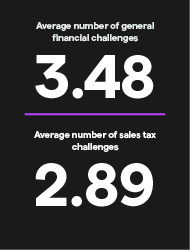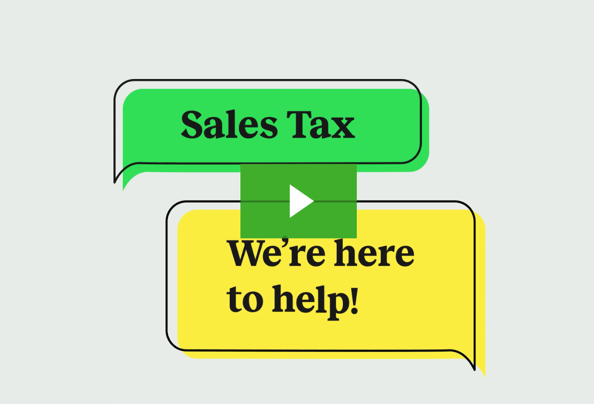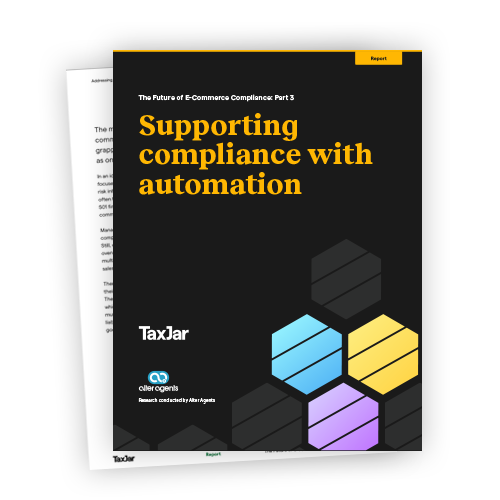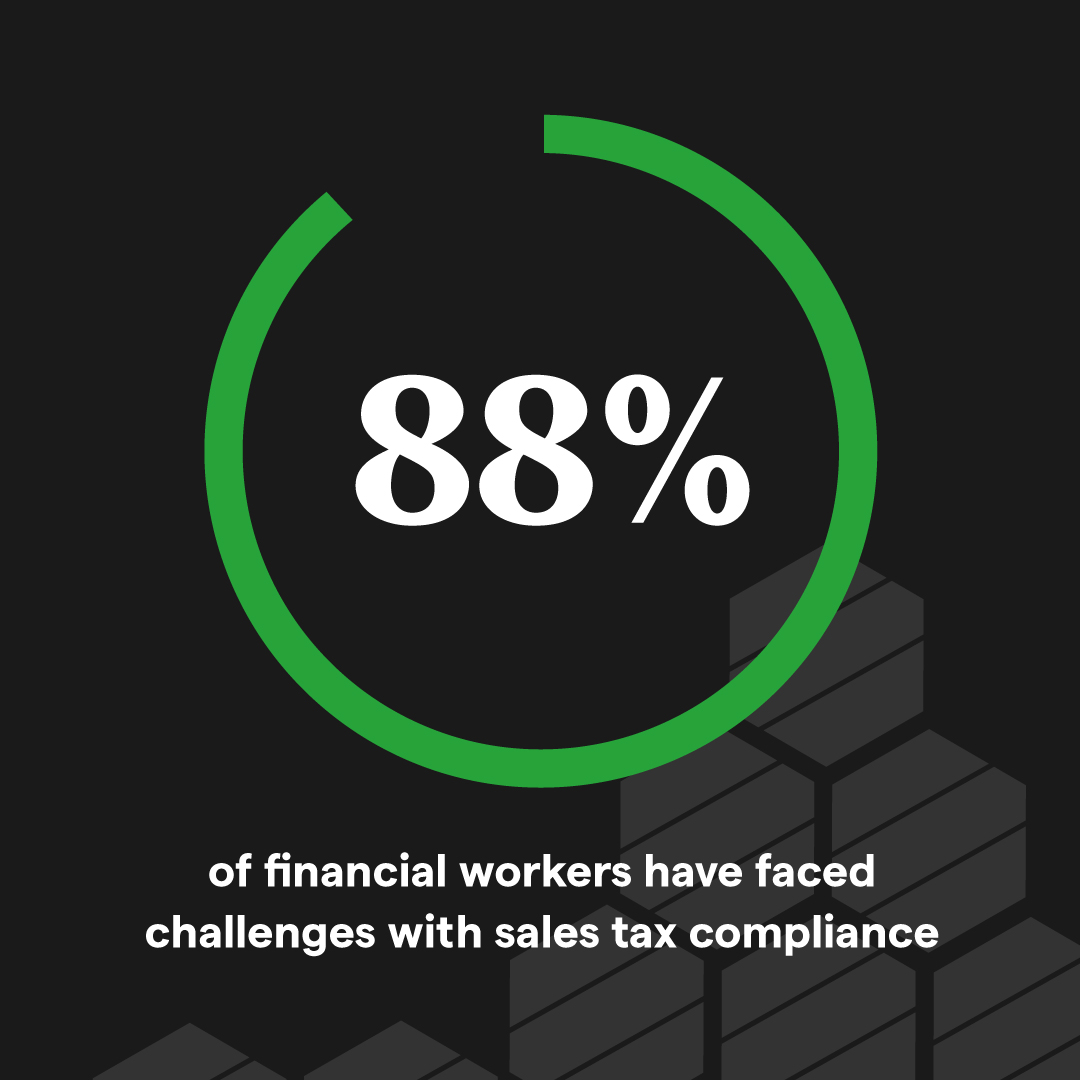New Survey & Report: The Future of E-Commerce and Compliance
by September 9, 2021
The pandemic — and the response of the market — have made the last year a whirlwind for e-commerce. We wanted to try and understand just how much the changes in consumer habits are impacting the current state of e-commerce and compliance. To do that, we partnered with the research firm Alter Agents to survey over 500 financial professionals and gain perspective into the day-to-day experiences of those of you who are on the front line of these shifts in e-commerce.
We asked participants about their greatest challenges in compliance, and how they see those challenges shifting over time. We asked them what kinds of tools they use to mitigate those challenges — and where they see opportunities for growth in the arena of compliance. We’re excited to share our findings in Part 1 of the report, The Acceleration of E-Commerce and the Impact on Compliance.
Here are some highlights from the report.
Insights from part I of the report:
The Acceleration of E-Commerce and the Impact of Compliance
As we all know, the pandemic kickstarted an already rising e-commerce sector. Of the companies we surveyed, 74% have done more business in e-commerce since the start of the pandemic. However, with great growth comes great complexity. As organizations move more business online, it’s likely their sales tax obligations increase as well. And it gets a lot more complicated when your buyers are shopping on a laptop rather than from a store.
As one financial professional described, “Sales and use tax issues are particularly tough if a firm operates in several states, in addition to the usual issues of complying with different laws.” And states make changes all the time. About 45% of financial professionals who are overwhelmed with sales tax compliance say it is because the state or jurisdiction has changed sales tax laws without them knowing. Say you sell in 15 states, that is 15 state laws to be familiar with, maintain records for, and ensure the laws aren’t changing without you being aware of.

This complexity is because e-commerce can take place anywhere, anytime, in any state across the U.S. This forces financial professionals to get familiar with rules and regulations they might not be familiar with like shipping, nexus laws, variable tax rates, and more. When your buyer was in the store it was a lot easier to determine how much sales tax to charge, you charge the sales tax rate for the address of your store, easy. When your shoppers are buying online, it gets a tad more complicated. With all of this in mind, it’s no surprise that 88% of financial workers have faced challenges with sales tax compliance.
And it’s a make or break moment. As one financial professional told us, “The challenge is very obvious: when our sales tax is not compliant, we will not be able to continue our business.” Think audits, customer dissatisfaction, paying back taxes or having any sales tax liabilities that could threaten a merger or acquisition. These are just some of the negative consequences sellers can face if they find themselves out of compliance.
The bumps on the road to compliance
Given the steep consequences, financial workers are doing everything they can to be in compliance. But it’s not easy – 82% of those we surveyed have had a negative experience with tax compliance. Close to one in three have charged the wrong sales tax rate, been audited, and/or had the state or jurisdiction change the sales tax rate without them knowing.
With each state, city, and even jurisdictions having their own sales tax laws, you can see how the increase in e-commerce traffic over the last year has thrown sellers for a loop.
Why now?
Sales tax has always been a concern for companies, so why are we all so stressed about it now? Two main reasons. About three years ago, a supreme court case allowed states to implement economic nexus laws. In other words, due to the ruling, even if you do not have a physical presence in a state, if you pass a state’s economic threshold for total revenue or number of transactions in that state, you’re legally obligated to collect and remit sales tax to that state.
In addition, the e-commerce boom that occurred as a result of COVID-19. People were sheltering in their homes and making purchases from their couches instead of visiting a store in-person. A lot of people too – nearly 70% of shoppers agree that COVID-19 changed their shopping habits. While you might think the pandemic would have caused U.S. retail to slow down – e-commerce allowed it to do the opposite. U.S. sales grew by 44% in 2020 as the pandemic shifted a lot of buying online.
How TaxJar streamlines compliance
So where do we go from here? How can financial professionals get a handle on compliance and sales tax related woes?
E-commerce is going to continue to grow. Buyers enjoy the convenience of e-commerce, and even as consumers get more comfortable with venturing out into the world again it’s not going away anytime soon. This means that financial professionals need to find a solution to manage this ongoing challenge of sales tax compliance.
That’s where TaxJar can help. We created TaxJar to ease the burden of sales tax for e-commerce sellers. Our cloud-based platform automates the entire sales tax life cycle across all of your sales channels — from calculations and nexus tracking to reporting and filing. With innovative technology and award-winning support, we simplify sales tax compliance so you can grow your company with ease.
The TaxJar platform automates sales tax compliance across 11,000 jurisdictions. We also make sure you always stay ahead of your economic nexus exposure, collect the right sales tax rate on every product sold, and submit filings and remittances on time. We’ll even file your returns for you with AutoFile.
Start a free trial with TaxJar today and see how we can help you stay in compliance now and in the future.
Want to see more? Download Part 1 of the report here.









